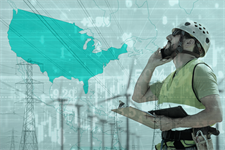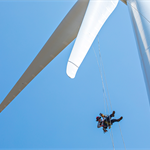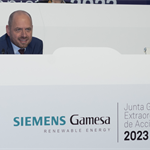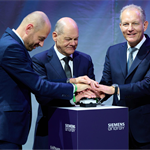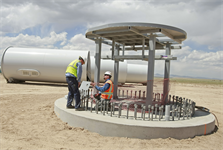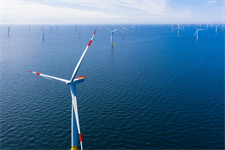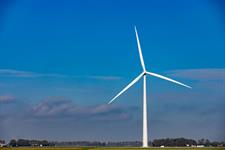Clarify IRA, scale workforce and mind the inflation gap, Siemens Gamesa tells US policymakers
Energy Disrupter
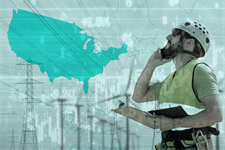
But an expanded US wind market still faces several challenges, and policymakers need to “build on the policy framework now in place” to meet greenhouse gas emissions targets, the white paper entitled ‘Scaling Up the American Wind Industry’ said.
Siemens Gamesa said that four key steps are required to resolve the challenges and build on the wind-boosting Inflation Reduction Act (IRA), signed into law in August.
Among other measures, IRA instituted 10-year production and investment tax credits – which had previously expired in 2021 – for clean energy, including wind. The law also includes a novel manufacturing tax credit for clean energy components, such as US-made wind nacelles and blades.
Four steps
The four steps are: expediting sensible implementation of IRA policies; acknowledging the global macro-economic impacts of inflation on offshore project construction; addressing the growing wind workforce gap; and streamlining permitting processes and transmission build-out. In September, Siemens Gamesa released a white paper on European policy which called for Europe-wide action to guarantee that wind power is treated as a strategic industry.
Challenges
The challenges for wind cited in Siemens Gamesa’s US white paper include uncertainty regarding the rules and eligibility requirements for new IRA incentive programmes, which Siemens Gamesa said limits the ability for industry players to make significant investment decisions in the near-term.
Trade body the American Clean Energy Association (ACP) echoed the sentiment in its third quarter 2022 market report, which found that wind installations had fallen to a nine-year low.
Siemens Gamesa also cited the macro-economic impacts on offshore wind projects that result from the years-long gap between wind energy procurement auctions and project construction.
Additionally, the white paper points to other challenges, including the growing gap between qualified workers and jobs in the domestic manufacturing of wind turbine components as well as the construction, operation, and servicing of wind-energy projects.
It also cites long and unpredictable permitting processes that limit project viability and transmission infrastructure – which is also an issue in Europe – and inadequately balanced risk-reward structures between developers and wind-turbine manufacturers.
The white paper follows ACP’s warning in November that new guidelines released from the US Department of Treasury on IRA’s labour requirements for the tax credits for wind and other clean energy provided “little clarity.”
Credits clarity needed
The Internal Revenue Service has yet to release guidance on how companies can access the new and extended tax credits in IRA, a crucial step if the wind industry is to benefit from IRA’s $369 billon of climate-related spending.
This has had an impact on the wind industry, although Siemens Gamesa’s white paper noted that, so far, more than $40 billion of capital investment and over 13GW of new clean energy capacity have been announced since the IRA became law.
Inflation effect
Additionally, Siemens Gamesa’s call for recognition of the macro-economic impacts on offshore projects follows the high-profile disagreement between the developers of two offshore wind projects off Massachusetts and with state regulators over the price of the projects’ power purchase agreements (PPA).
The offshore wind developers unsuccessfully argued that the PPA prices, set some years ago, should be raised because of factors such as high inflation. Some states have provisions that take account of inflation in offshore wind PPAs, but not Massachusetts, one of the epicentres of US offshore wind development.
‘Act decisively’
But Siemens Gamesa’s white paper concludes on an optimistic note. It said the path to achieving the US’s clean energy ambitions has never been clearer and that the stage is set for a long-awaited transition to clean energy that will create hundreds of thousands of jobs, empower communities, and secure US leadership on the global stage in the fight to mitigate the impacts of climate change.
To make the most of this opportunity, Siemens Gamesa said US policymakers must “act decisively” to cultivate a policy ecosystem that addresses the remaining barriers to clean-energy deployment.

